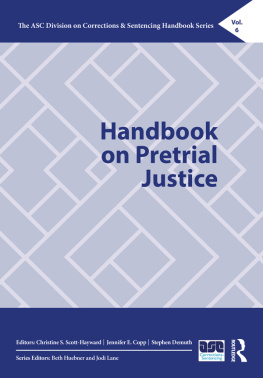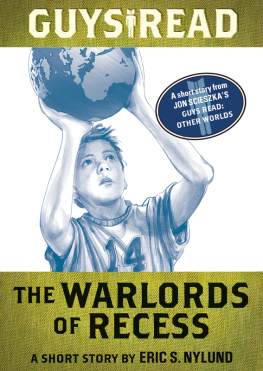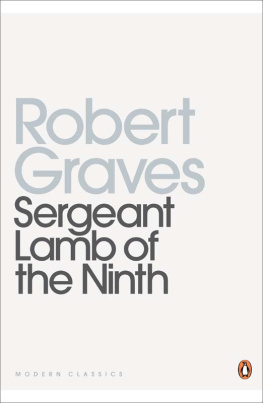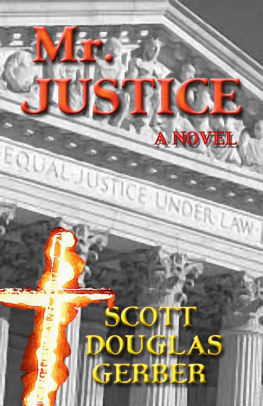Graves Scott E. - Justice Takes a Recess
Here you can read online Graves Scott E. - Justice Takes a Recess full text of the book (entire story) in english for free. Download pdf and epub, get meaning, cover and reviews about this ebook. year: 2009, publisher: Lexington Books, genre: Romance novel. Description of the work, (preface) as well as reviews are available. Best literature library LitArk.com created for fans of good reading and offers a wide selection of genres:
Romance novel
Science fiction
Adventure
Detective
Science
History
Home and family
Prose
Art
Politics
Computer
Non-fiction
Religion
Business
Children
Humor
Choose a favorite category and find really read worthwhile books. Enjoy immersion in the world of imagination, feel the emotions of the characters or learn something new for yourself, make an fascinating discovery.

- Book:Justice Takes a Recess
- Author:
- Publisher:Lexington Books
- Genre:
- Year:2009
- Rating:3 / 5
- Favourites:Add to favourites
- Your mark:
- 60
- 1
- 2
- 3
- 4
- 5
Justice Takes a Recess: summary, description and annotation
We offer to read an annotation, description, summary or preface (depends on what the author of the book "Justice Takes a Recess" wrote himself). If you haven't found the necessary information about the book — write in the comments, we will try to find it.
Justice Takes a Recess — read online for free the complete book (whole text) full work
Below is the text of the book, divided by pages. System saving the place of the last page read, allows you to conveniently read the book "Justice Takes a Recess" online for free, without having to search again every time where you left off. Put a bookmark, and you can go to the page where you finished reading at any time.
Font size:
Interval:
Bookmark:
Justice Takes a Recess
Judicial Recess Appointments from
George Washington to George W. Bush
SCOTT E. GRAVES AND ROBERT M. HOWARD

LEXINGTON BOOKS
A division of Rowman & Littlefield Publishers, Inc.
A wholly owned subsidiary of The Rowman & Littlefield Publishing Group, Inc.
4501 Forbes Boulevard, Suite 200
Lanham, MD 20706
Estover Road
Plymouth PL6 7PY
United Kingdom
Copyright 2009 by Lexington Books
All rights reserved. No part of this publication may be reproduced, stored in a retrieval system, or transmitted in any form or by any means, electronic, mechanical, photocopying, recording, or otherwise, without the prior permission of the publisher.
British Library Cataloguing in Publication Information Available
Library of Congress Cataloging-in-Publication Data
Graves, Scott E., 1971
Justice takes a recess : judicial recess appointments from George Washington to George W. Bush / Scott E. Graves and Robert M. Howard.
p. cm.
Includes bibliographical references and index.
ISBN 978-0-7391-2662-2
1. JudgesSelection and appointmentUnited States. I. Howard, Robert M., 1956 II. Title.
KF8776.G666 2009
347.73'14dc22 2009004795
Printed in the United States of America
 The paper used in this publication meets the minimum requirements of American National Standard for Information SciencesPermanence of Paper for Printed Library Materials, ANSI/NISO Z39.481992.
The paper used in this publication meets the minimum requirements of American National Standard for Information SciencesPermanence of Paper for Printed Library Materials, ANSI/NISO Z39.481992.
Dedications
Scott E. Graves:
To my father, Thomas M. Graves, Jr., my mother, Betty G. Graves, and my brother, Michael Graves
Robert M. Howard:
To my parents, Amy and Bernie Howard
Acknowledging the assistance of others is an exercise in balancing hazards. One risks omitting someone whose support, provided perhaps early in the project, was indispensible to the endeavor, but is overlooked in the reckoning. On the other hand, those mentioned stand in jeopardy of being implicated in a crime they didnt commit. Nevertheless, we owe a debt to many scholars who provided feedback on various parts and incarnations of the work in this book at conferences. In that regard, we would like to thank Rich Pacelle, Bradley Hays, Kevin McMahon, David Crocker, and Robert Spitzer.
We are particularly obliged to Pam Corley, for her contributions to .
Throughout the process of developing these materials into the book and preparing it for publication, we have been delighted to find the editors and staff with whom weve worked at Lexington and Rowman & Littlefield to be friendly, helpful, and capable. We would especially like to thank acquisitions editor Joseph C. Parry, editorial assistants Jana M. Wilson and Anna Miars, and assistant editor Ashley Baird.
For able research and other assistance, wed like to thank Shenita Brazelton, Carol Walker, and Aimee Wickman.
Bob Howard would like to thank his family. To my children, Courtney and Jordan thank you for being wonderful, loving and always challenging. I am sorry that I made you Met fans, but blame Papa. To Dave, thank you for letting me adopt and support a Senator who is not from my home state. I thank my parents, Amy and Bernie Howard for all their sacrifice, love and devotion. I want to thank my late grandparents, Ivan and Rachel Skura and William and Anna Horowitz. You all let me grow up in an extended family atmosphere of love, support and really good food. I took this for granted and only many years later do I realize how lucky I was. Finally to Taryn, the love of my life and my best friend for all these years, with you all losses are restored and sorrows end.
Scott Graves would like to thank his colleagues at Georgia State University for all of their insight and patience while this book was taking shape. During many conversations in halls and offices, knowingly or not, you helped me to think about the issues and implications of this work. In that spirit, Id like to thank Rich Engstrom, Charles Hankla, Jeff Lazarus, Jason Reifler, and Amy Steiger-walt.
On April 9, 2003, President George W. Bush nominated William H. Pryor, Jr. to the United States Court of Appeals for the Eleventh Circuit. His confirmation stalled in the Senate when interest groups objected to his views on various matters. With the nomination languishing in the United States Senate, Congress adjourned for twelve days in mid-February, 2004, taking advantage of the Presidents Day holiday weekend. During the congressional recess period, President Bush used his recess appointment power to install Pryor as judge, thus bypassing the confirmation process in the U.S. Senate. Pryor then resigned his position as attorney general for the state of Alabama and took his judicial oath for a term lasting until the end of 2006 when the next Congress begins.
The Senate eventually confirmed Pryor as a judge. However, before his confirmation, plaintiffs challenged the authority of the president to make this type of recess appointment. In Evans v. Stephens, 387 F.3d.1220 (2004), a divided en banc Eleventh Circuit rejected the plaintiffs contentions and, with majority and dissenters differing on the plain meaning of the United States Constitution, upheld the appointment of their colleague, Judge Pryor.
The case sparked a vigorous debate within the court, with both sides offering similar theories of constitutional interpretation. Writing for the majority, Chief Judge J.L. Edmondson relied on text, intent, historical practice, and precedent to support the constitutionality of the appointment. He noted that the Constitution specifically says that The President shall have Power to fill up all Vacancies that may happen during the Recess of the Senate, by granting Commissions which shall expire at the End of their next Session, and that vacancies refer to Judges of the Supreme Court, and all other Officers of the United States, whose Appointments are note herein otherwise provided for, and which shall be established by law. The plain meaning of this clause was that the president is allowed to make temporary recess appointments to these offices, including all Article III courts such as the United States Circuit Courts of Appeals, without Senate approval.
Moreover, the court held that the phrase the Recess of the Senate does not limit the president to intersession as opposed to intrasession recesses. There is no language referring to any minimum time in these clauses, and presidents have several times made appointments during intrasession recesses even shorter than that in which the Pryor appointment was made.
There were two dissents to Chief Judge Edmondsons majority opinion. The first, by Judge Rosemary Barkett, challenged the interpretations of the Recess Appointment Clause proffered by the majority, highlighting the difficulty of interpreting the text of a document that is more than two hundred years old. Judge Barkett challenged the majoritys assertion that where the language is susceptible of different interpretations, the court should defer to historical practice and the preferences of the other branches of government. Barkett argued that the intent of the framers, as evidenced by Alexander Hamilton in the Federalist Papers and Justice Joseph Storys early nineteenth-century treatise, was that the purpose of the Recess Appointment power was to enable the President to fill vacancies when the Senate was not able to act on the appointments, so that the operations of government and the administration of justice could be furthered. Thus, the Recess Appointment power was meant only for intersession, not intrasession, recesses. Otherwise, Judge Barkett argued, there would be nothing to prevent the President from repeatedly circumventing the Senates advice and consent role.
Next pageFont size:
Interval:
Bookmark:
Similar books «Justice Takes a Recess»
Look at similar books to Justice Takes a Recess. We have selected literature similar in name and meaning in the hope of providing readers with more options to find new, interesting, not yet read works.
Discussion, reviews of the book Justice Takes a Recess and just readers' own opinions. Leave your comments, write what you think about the work, its meaning or the main characters. Specify what exactly you liked and what you didn't like, and why you think so.










